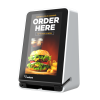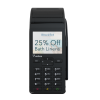What is a chargeback?
charge - back
nounA chargeback is a transaction where the issuing bank reverses a payment made by a customer to a merchant. Typically, this occurs when a customer raises a dispute about a purchase with their bank, seeking a resolution.
How does a chargeback work?
When a customer is dissatisfied with a product or service or they have not received the order in question, and their attempts to resolve the issue directly with the merchant have failed, their last recourse is to contact their bank or credit card company. In such cases, the issuing bank or credit card company may step in as a final option and issue a credit to the customer, known as a chargeback, to compensate for their claimed loss. Chargebacks can also arise due to factors like errors in bank processing, double billing, cases of identity theft, disputes over pricing, failed refunds and more.
It's crucial to understand that chargebacks can have serious consequences for merchants. Processing chargebacks is a costly process for all parties involved, including the issuing bank, acquiring bank and payment service provider. Merchants often face fees for each chargeback, reflecting the expenses incurred in managing the dispute.
To regulate chargebacks, card associations have stringent rules in place that require banks, payment service providers and merchants to adhere to specific procedures. Merchants who accumulate excessive chargebacks may face penalties, potentially losing the privilege of accepting credit cards issued by card associations. Thus, it is generally in the best interest of merchants to consider issuing a refund before a chargeback is initiated, as it can help prevent complications and maintain positive business relationships.
Need help with the world of commerce?
Good consultation takes time.
Our team of experts will happily discuss your needs.












